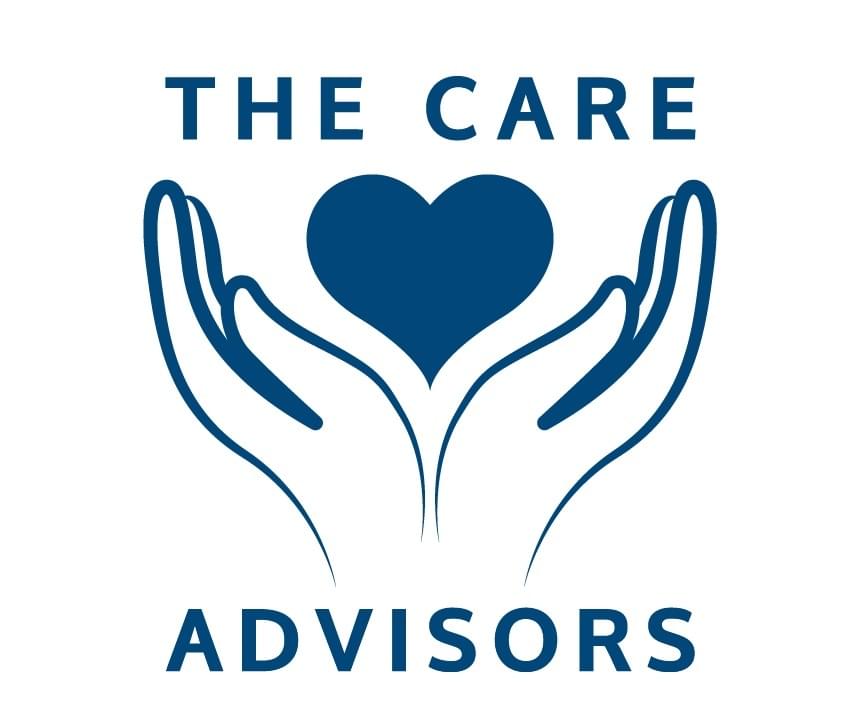
TO ENROLL IN FAMILY CARE
CALL (267) 833-2133
The Family Care program allows Medicaid recipients to choose who provides their home care services!
Family, friends and loved ones are now able to be PAID for helping those close to them.
No certifications needed and pay rates from $18/hr! To enroll call us at (267) 833-2133 or fill out our quick form and we'll contact you!
Enter Contact Info Below
Get Paid to Care for a Family Member in Philadelphia, Pennsylvania
Caring for a family member is both a rewarding and challenging task. In Philadelphia, Pennsylvania, you can get paid to care for your loved one, easing some of the financial burdens while ensuring they receive the best care at home. Caregiving is crucial as it allows loved ones to stay in a familiar environment, but it can also be emotionally and financially draining. Many families struggle to balance caregiving with other responsibilities, which is why recognizing and compensating caregivers is so important. At PA Care Advisors, This blog post aims to provide clear information on how you can receive compensation for caregiving in Pennsylvania. We'll cover the need for caregiving, eligibility criteria, available programs, application steps, and additional resources.
Understanding the Need for Caregiving in Philadelphia, Pennsylvania
The need for caregiving services is growing rapidly due to:
Aging Population: More people are living longer, increasing the demand for caregiving.
Desire for Home Care: Many families prefer to keep their loved ones at home rather than in nursing facilities.
Caregiving can place a significant burden on families:
Emotional Strain: Caring for a loved one can be emotionally challenging, causing stress and burnout.
Financial Pressure: Caregiving often requires reducing work hours or quitting jobs, leading to financial difficulties.
Recognizing and compensating family caregivers is essential because:
Dedication and Hard Work: Family caregivers invest a lot of time and effort into providing quality care.
Value of Care: Compensating caregivers acknowledges their vital role and helps ease financial stress.
By understanding and addressing these needs, we can better support family caregivers in their crucial roles.
Eligibility Criteria for Compensation
To receive payment as a family caregiver in Philadelphia, Pennsylvania, you must meet specific eligibility criteria set by the Philadelphia, Pennsylvania Department of Aging:
Care Recipient's Medicaid Eligibility: The person you are caring for must be eligible for Medicaid or a Medicaid waiver program.
Specific Care Needs: The care recipient must have specific care needs that qualify for the program.
Eligibility Criteria:
Medicaid Requirements: The care recipient must meet Medicaid or Medicaid waiver program requirements. This often involves income and asset limits.
Assessment Process: An assessment will be conducted to determine the level of care required. This assessment ensures the care recipient’s needs are being met and justifies the compensation for the caregiver.
Importance of Meeting Specific Care Needs:
Personal Care Assistance: The care recipient must require help with daily activities such as bathing, dressing, and eating.
Health and Safety: The assessment will evaluate the care recipient's health and safety needs, ensuring they receive appropriate care.
By understanding and meeting these eligibility criteria, family caregivers in Pennsylvania can receive the compensation they deserve, easing the financial burden and recognizing their valuable contribution.
Call (267)833-2133 to get started with Family Care Today!
Medicaid Waiver Programs in
Philadelphia, Pennsylvania
Philadelphia, Pennsylvania offers several Medicaid waiver programs to help families care for loved ones at home. These programs provide financial assistance and support to family caregivers.
Overview of Medicaid Waiver Programs:
Aging Waiver: For seniors aged 60 and above, offering services to help them stay at home.
Independence Waiver: For adults with physical disabilities, helping them live independently.
Attendant Care Waiver: For individuals aged 18-59 who need assistance with daily activities.
COMMCARE Waiver: For individuals with traumatic brain injuries, providing specialized support.
Financial Assistance for Family Caregivers:
Compensation: Family caregivers can receive payments for providing care, reducing the financial burden.
Support Services: These programs offer various services that help caregivers manage their responsibilities.
Services and Supports Offered:
Personal Care Assistance: Help with daily activities like bathing, dressing, and eating.
Respite Care: Temporary relief for caregivers, giving them a break from their duties.
Home Modifications: Financial support for home modifications to make the living environment safer and more accessible.
These Medicaid waiver programs are essential for supporting family caregivers in Philadelphia, Pennsylvania. They provide the necessary financial assistance and services to help caregivers continue their crucial role in caring for their loved ones at home.
Applying for Compensation as a Family Caregiver
Applying for compensation as a family caregiver in Philadelphia, Pennsylvania involves several steps and requires specific documentation. Here’s a simple guide to help you through the process.
Steps to Apply:
Determine Eligibility:Ensure the care recipient qualifies for Medicaid or a Medicaid waiver program.
Gather Documentation:Collect all necessary documents to support your application.
Complete the Application:Fill out the required forms accurately.
Submit the Application:Send your completed application and supporting documents to the appropriate office.
Required Documentation:
Proof of Caregiving Responsibilities:Statements or letters from medical professionals or social workers confirming your caregiving role.
Care Recipient's Medicaid Eligibility:Documentation showing the care recipient's eligibility for Medicaid or a Medicaid waiver program.
Care Plan:A detailed plan outlining the care provided, including the types of services and hours of care.
Where to Submit the Application:
Philadelphia, Pennsylvania Department of Aging:You can submit your application to your local Area Agency on Aging (AAA).Find your local AAA office through the
Philadelphia, Pennsylvania Department of Aging’s website.
Deadlines:Check with your local AAA office for specific deadlines and ensure your application is submitted on time.
By following these steps and ensuring you have all necessary documentation, you can apply for compensation as a family caregiver in Philadelphia, Pennsylvania. This support helps acknowledge the critical role caregivers play and eases the financial strain they often face.
Understanding the Payment Process for Family Caregiver in Philadelphia
Understanding how the payment process works for family caregivers in Philadelphia, Pennsylvania is essential for ensuring you receive your compensation smoothly.
How the Payment Process Works:
Approval: Once your application is approved, you'll start receiving payments for your caregiving services.
Payment Frequency: Payments are typically made on a regular schedule, such as monthly or bi-weekly, depending on the program.
Payment Amount: The amount you receive will depend on the level of care provided and the specific program requirements.
Payment Options:
Direct Deposit:Payments can be directly deposited into your bank account, ensuring a quick and secure transfer of funds.
Check:Alternatively, you can receive your payments by check, which will be mailed to your address.
Importance of Accurate Records:
Tracking Hours Worked:Keep a detailed record of the hours you work and the specific tasks you perform. This ensures that you are paid correctly for the time and effort you put into caregiving.
Reporting Hours:Regularly report your hours to the appropriate agency or program to maintain accurate records. This helps prevent payment delays and discrepancies.
Documentation:Maintain all necessary documentation, such as timesheets and care logs, to support your reported hours and caregiving activities.
Keeping accurate records and consistently reporting your hours are crucial steps in ensuring you receive timely and accurate payments. By understanding and following the payment process, you can focus more on providing quality care to your loved one and less on financial concerns.
Additional Resources and Support
Caring for a family member can be demanding. Fortunately, there are resources and support available in Philadelphia, Pennsylvania to help you.
Resources and Support for Family Caregivers:
Pennsylvania Department of Aging:Offers various programs and services to assist caregivers.Visit their website or contact your local Area Agency on Aging (AAA) for more information.
Medicaid Waiver Programs:Provide financial assistance and support services for caregivers.Programs include the Aging Waiver, Independence Waiver, Attendant Care Waiver, and COMMCARE Waiver.
Organizations and Support Groups:
AARP Caregiver Resource Center:Provides articles, tips, and tools for caregivers.Offers a supportive community and expert advice.
Family Caregiver Alliance:Offers online resources, support groups, and educational materials.Provides a Caregiver Connect online forum to share experiences and advice.
Pennsylvania Caregiver Support Program:Provides financial assistance, counseling, and respite care services.Helps caregivers manage stress and avoid burnout.
Importance of Self-Care and Respite Services:
Self-Care Tips:Take regular breaks to rest and recharge.Engage in activities you enjoy to maintain your well-being. Seek emotional support from friends, family, or support groups.
Respite Services:Provide temporary relief for caregivers.Allow caregivers to take a break while ensuring their loved ones receive quality care.Can be arranged through local AAAs or other caregiving organizations.
Taking advantage of these resources and support systems can make caregiving more manageable and help you maintain your health and well-being. Remember, taking care of yourself is just as important as taking care of your loved one.
Family Caregiver Pay Rates in Pennsylvania
Average Pay Rates: Family caregivers in Philadelphia, Pennsylvania can expect to earn variable pay rates, typically influenced by program specifics and regional cost of living. On average, hourly rates might range from approximately $10 to $20.Factors Influencing Pay Rates:
Experience: More experienced caregivers often receive higher compensation due to their enhanced skills and capabilities in managing complex care needs.Level of Care Required: The intensity of care required (e.g., medical monitoring, mobility assistance) can elevate the pay rate, reflecting the increased responsibility and skill needed.Comparison with Other Caregiving Options:Compared to professional caregiving services or institutional care (e.g., nursing homes), family caregiver pay rates are typically lower. However, family caregivers provide the added value of personal familiarity and emotional support, which are not quantified in their compensation.Unlike professional caregivers who may work for agencies, family caregivers might not always receive benefits like health insurance or retirement plans, which impacts overall financial considerations.
This outline provides a quick insight into pay scales and influencing factors for family caregivers in Philadelphia, Pennsylvania, setting the context for more detailed exploration or discussion.
Call (267)833-2133 to get started with Family Care Today!
Financial Support for Caring for an Autistic Child in Philadelphia, Pennsylvania
Overview of Programs and Resources:
Medicaid Waiver Programs: Specifically tailored programs like the Autism Waiver, providing specialized services and supports for children with autism.
Pennsylvania Autism Services, Education, Resources, and Training (ASERT): Statewide initiative offering resources, training, and support to caregivers.
Community and School-Based Services: Access to therapists, behavioral specialists, and educational programs through local school districts and community centers.
Eligibility Requirements and Application Processes:Age and Diagnosis: Services are typically available to children diagnosed with Autism Spectrum Disorder, with specific age criteria for different programs.
Residency and Financial Need: Must be a Pennsylvania resident and meet certain financial criteria, depending on the program.
Application: Involves submitting diagnostic proof from a qualified healthcare provider and completing detailed application forms available through the Pennsylvania Department of Human Services.
Additional Financial Assistance Options:
Grants and Subsidies: Various non-profit and governmental grants are available to help cover therapy costs, home modifications, and educational tools.
Respite Care Funding: Financial support for temporary caregiving services, allowing primary caregivers to take necessary breaks.
This concise overview provides caregivers with essential information about the financial support options available in Pennsylvania for caring for a child with autism, detailing program specifics, eligibility, and how to access these resources.
Can family members be paid caregivers in Philadelphia, Pennsylvania?
Yes, in Philadelphia, Pennsylvania, family members can become paid caregivers through Medicaid's Personal Assistant Services (PAS) program. This arrangement is beneficial as it allows for personal care by someone who intimately understands the needs and preferences of the care recipient, which can significantly enhance the quality of care provided.
What are the requirements to become a paid family caregiver in Philadelphia, Pennsylvania?
To become a paid family caregiver in Philadelphia, Pennsylvania, one must meet several criteria: being at least 18 years old, completing required caregiver training, and undergoing a TB test. These requirements ensure that caregivers are adequately prepared and healthy enough to provide care.
What programs support family caregivers financially in Philadelphia, Pennsylvania?
Pennsylvania offers several programs to support family caregivers financially. The Family Caregiver Support Program offers financial reimbursements for caregiving expenses and access to additional resources like respite care. Medicaid waivers such as OBRA, ACT 150, and Community HealthChoices (CHC) are also available, providing various benefits including compensation for caregiving duties.
How do I start the process to become a paid caregiver for a family member in PA?
The process begins by confirming that the care recipient qualifies for Medicaid. Following this, caregivers should contact the Philadelphia, Pennsylvania Independent Enrollment Broker or the local Area Agency on Aging to initiate the application process. These agencies help navigate the enrollment process, ensuring that all necessary documentation and requirements are met.
What does the Pennsylvania Independent Enrollment Broker do?
The Philadelphia, Pennsylvania Independent Enrollment Broker plays a crucial role by facilitating the enrollment and eligibility processes for Medicaid and its related waiver programs. This broker acts as an intermediary, helping applicants navigate the system, organize health assessments, and ensure that all necessary steps and paperwork are properly handled to qualify for caregiver compensation.
Are there specific training or certifications required for family caregivers in Philadelphia, Pennsylvania?
Yes, family caregivers in Philadelphia, Pennsylvania are required to complete specific training programs that provide essential skills and knowledge for caregiving. These programs cover topics such as patient handling, basic medical care, and emergency response, which are critical for ensuring the safety and well-being of both the caregiver and the care recipient.
What support services are available to family caregivers in Philadelphia, Pennsylvania?
Philadelphia, Pennsylvania offers a range of support services for family caregivers, including respite care, counseling, and access to caregiver support groups. These services aim to reduce caregiver stress and provide a network of support, which is vital for maintaining the caregiver’s health and the quality of care they provide.
Can caregivers receive financial assistance for home modifications in Philadelphia, Pennsylvania?
Yes, financial assistance for home modifications is available through programs like the Medicaid Waiver programs, which can include alterations to the home to make it safer and more accessible, such as installing grab bars or ramps. This assistance helps ensure the care recipient's environment is suitable for their needs, thereby enhancing their quality of life and safety at home.
What are the tax implications for paid caregivers in Philadelphia,Pennsylvania?
Caregivers in Philadelphia, Pennsylvania may face various tax implications, including the need to pay income taxes on their earnings. If caregivers are considered employees, taxes may be withheld from their paychecks, and they are responsible for Social Security and Medicare taxes. Independent contractors, on the other hand, must handle these tax obligations independently. It’s advisable to consult with a tax professional to understand these implications fully and ensure compliance with tax laws.
How are caregivers compensated in Philadelphia, Pennsylvania?
Caregiver compensation in Philadelphia, Pennsylvania varies based on the program but generally includes an hourly wage that can range depending on the level of care provided, the caregiver’s qualifications, and geographic location. Benefits might also include health insurance, paid time off, and workers’ compensation, among others.

Benefits of Family Care vs. Traditional Home Care
-You choose who provides your care - Anyone except a spouse can be chosen and paid as a care giver.
- Increased scope of practice - caregivers are allowed to perform tasks such as medication administration, injections etc.
- Flexible schedule - You and your caregiver set a schedule that suits you!
Ready To Get Started?
Call (267)833-2133 to get enroll in Family Care Today!
See What Families Are Saying!
Anais P. Testimonial
Tyesha W. Testimonial
Silvia R. Testimonial
"When Mom got sick, it got harder for her to do everyday tasks like cooking, cleaning and laundry. Having me there really helped to ease her tensions on so many levels."
-Sandra Barnes, Philadelphia
We service all counties of Pennsylvania for this program.
Ready to get started?
Call (267) 833-2133 or fill out the form above and we'll contact you!
Get PAID to care for family & friends with the freedom to choose your own schedule!
